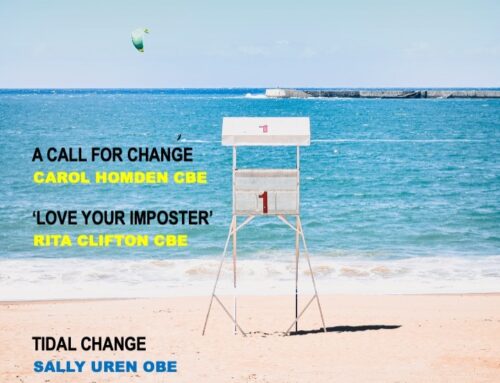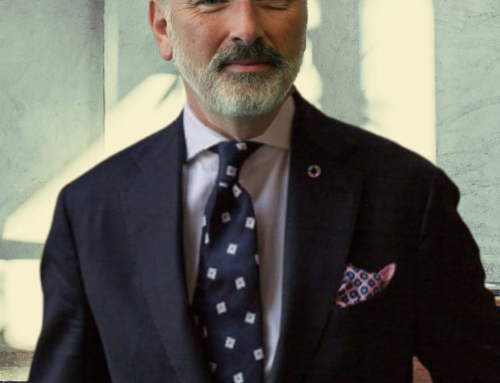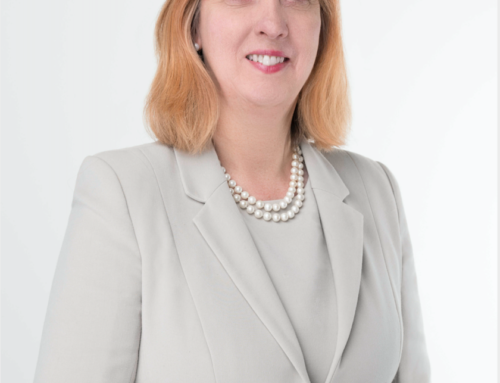In times of Disruption we need the evidence

What future we will have as we exit the current crisis? Are we going to exit with industry intact all will we suffer catastrophic job losses and a debt to GDP ratio out of control;. Will society, already quite unequal emerge even more sop with serious repercussions for society and democracy in the future? Will business take fright and move investments out of the UK. And what will the role of the state be- both as supporter and lender of last resort to and as owner and regulator of businesses at the same time- a schizophrenic existence at that- and will green be abandoned or will in in fact be a critical part for rejuvenating the economy. All these are legitimate questions and they are asked both by the left, centre and right of centre bodies and by the wider public. Does evidence have a role to play? And in particular, what can economists and other social scientists do.
I sit on the board of the Academy for Social sciences and we are relaunching our campaign for the understanding of what social sciences can contribute. In addition to the excellent input that STEM scientists have had in dealing with the current pandemic, the crisis has also highlighted the importance of listening to behavioural scientists , psychologists, statisticians and modellers . And the UK is additionally blessed with excellent think tanks staffed with very capable social science researchers and producing a large amount of very interesting and often influential papers on the economy. I have the privilege of having been a judge of Prospect’s magazine’s think tank of the year awards for a number of years running- and doing it again in a few months’ time.
So what is the problem. Well- for me it is the view of economists. as predictions for the future are based on such uncertain data the best many of us can do is just produce scenarios of possibilities. What will that do to our standing? I fear that it may take some time as a result to brush off Michael Gove’s contention that ‘people in this country have had enough of experts’ – by which I believe he meant economists. Or easily forget David Davis;’ shocking comment when as Dexeu’s Secretary after the Brexit referendum he was asked about the Brexit impact studies produced by the government departments across Whitehall when he said, if my memory serves me well, something like: –
‘I haven’t read them and don’t actually believe what economists tell me anyway’.
How could the government have become an ‘economic evidence free zone’- at least giving that appearance when in answering questions in full view of the public.
And yet we are very lucky in the UK to have over 1,000 economists working for the civil service and the Bank of England who produce in-house analysis and advice often working with external providers and survey firms to research areas of policy and provide advice. Even though the Government Economic Service (GES) which I had the privilege to co- head with (now Sir) Dave Ramsden between 2007 and 2010 is the envy of other professions in Whitehall there are constant wobbles as the Gove and Davis comments above demonstrate. When I entered the civil services as Chief Economists and then Director General of Economics at the then DTI in the early 2000s I found my then Department, despite having one of the largest number of economists of any department was in fact spreading them across the organisation allowing what is known as’ policy capture’, wittingly or unwittingly. Economists for each policy areas, such as manufacturing or small business or trade for example reported to their policy line manager and if the advice wasn’t , it was often disputed or ignored. And the appraisal of the economists was done in their policy areas. So I set about reorganising it/ While I was there , although the units of social scientists would sit with the policy team they had a double reporting line to me too at the centre and I e my central team or I would peer review and then also help adjudicate over any disputes within the individual units .I would also take part in the annual appraisal and pay awards for all. More widely across the civil service there was the added problem that in many departments the most senior economists were very junior in relation to their policy people they were dealing with thereby reducing their influence. And often they had to report their findings to the board through the Department’s chief scientific adviser who was usually senior to them, again constraining their effectiveness.
In my various GES roles, first as deputy to Nick(now Lord) Stern alongside Paul Johnson, now Director at the IFS , we followed on the progress made before us by Gus (now Lord) O’Donnell in upgrading the jobs of the Chief Economists across Whitehall as well as working to increase diversity in the top jobs (we now have two women joint heads!) I believe that in the process the visibility and influence but also of course accountability of economists was increased considerably. But we didn’t work in isolation. We also achieved much more joint working with the heads of the other professions including the Chief Scientific Adviser and the Chief Statistician.
But the feeling has now returned that first with the austerity and more recently around the Brexit debate there has been some impact on what can and can’t be said in government. And the Covid crisis has disrupted what our normal models tell us about how to engineer a sustainable recovery. Economics has a lot to offer as do the other social sciences. It is having that advice dismissed or ignored by non-experts without justification or described as not even worth reading grates and is undermining. The mantra for good government should be that we should all strive for developing and implementing evidenced based policy rather than policy based evidence which does nobody any good and often ends in tears.
Vicky Pryce
Board Member CEBR,
Former joint head the Government Economics Service,
Co-founder of GoodCorporation
Twitter: @realVickyPryce
Author of ‘Women vs Capitalism’, Hurst Publishing, October 2019
https://www.hurstpublishers.com/book/women-vs-capitalism/


In times of Disruption we need the evidence

What future we will have as we exit the current crisis? Are we going to exit with industry intact all will we suffer catastrophic job losses and a debt to GDP ratio out of control;. Will society, already quite unequal emerge even more sop with serious repercussions for society and democracy in the future? Will business take fright and move investments out of the UK. And what will the role of the state be- both as supporter and lender of last resort to and as owner and regulator of businesses at the same time- a schizophrenic existence at that- and will green be abandoned or will in in fact be a critical part for rejuvenating the economy. All these are legitimate questions and they are asked both by the left, centre and right of centre bodies and by the wider public. Does evidence have a role to play? And in particular, what can economists and other social scientists do.
I sit on the board of the Academy for Social sciences and we are relaunching our campaign for the understanding of what social sciences can contribute. In addition to the excellent input that STEM scientists have had in dealing with the current pandemic, the crisis has also highlighted the importance of listening to behavioural scientists , psychologists, statisticians and modellers . And the UK is additionally blessed with excellent think tanks staffed with very capable social science researchers and producing a large amount of very interesting and often influential papers on the economy. I have the privilege of having been a judge of Prospect’s magazine’s think tank of the year awards for a number of years running- and doing it again in a few months’ time.
So what is the problem. Well- for me it is the view of economists. as predictions for the future are based on such uncertain data the best many of us can do is just produce scenarios of possibilities. What will that do to our standing? I fear that it may take some time as a result to brush off Michael Gove’s contention that ‘people in this country have had enough of experts’ – by which I believe he meant economists. Or easily forget David Davis;’ shocking comment when as Dexeu’s Secretary after the Brexit referendum he was asked about the Brexit impact studies produced by the government departments across Whitehall when he said, if my memory serves me well, something like: –
‘I haven’t read them and don’t actually believe what economists tell me anyway’.
How could the government have become an ‘economic evidence free zone’- at least giving that appearance when in answering questions in full view of the public.
And yet we are very lucky in the UK to have over 1,000 economists working for the civil service and the Bank of England who produce in-house analysis and advice often working with external providers and survey firms to research areas of policy and provide advice. Even though the Government Economic Service (GES) which I had the privilege to co- head with (now Sir) Dave Ramsden between 2007 and 2010 is the envy of other professions in Whitehall there are constant wobbles as the Gove and Davis comments above demonstrate. When I entered the civil services as Chief Economists and then Director General of Economics at the then DTI in the early 2000s I found my then Department, despite having one of the largest number of economists of any department was in fact spreading them across the organisation allowing what is known as’ policy capture’, wittingly or unwittingly. Economists for each policy areas, such as manufacturing or small business or trade for example reported to their policy line manager and if the advice wasn’t , it was often disputed or ignored. And the appraisal of the economists was done in their policy areas. So I set about reorganising it/ While I was there , although the units of social scientists would sit with the policy team they had a double reporting line to me too at the centre and I e my central team or I would peer review and then also help adjudicate over any disputes within the individual units .I would also take part in the annual appraisal and pay awards for all. More widely across the civil service there was the added problem that in many departments the most senior economists were very junior in relation to their policy people they were dealing with thereby reducing their influence. And often they had to report their findings to the board through the Department’s chief scientific adviser who was usually senior to them, again constraining their effectiveness.
In my various GES roles, first as deputy to Nick(now Lord) Stern alongside Paul Johnson, now Director at the IFS , we followed on the progress made before us by Gus (now Lord) O’Donnell in upgrading the jobs of the Chief Economists across Whitehall as well as working to increase diversity in the top jobs (we now have two women joint heads!) I believe that in the process the visibility and influence but also of course accountability of economists was increased considerably. But we didn’t work in isolation. We also achieved much more joint working with the heads of the other professions including the Chief Scientific Adviser and the Chief Statistician.
But the feeling has now returned that first with the austerity and more recently around the Brexit debate there has been some impact on what can and can’t be said in government. And the Covid crisis has disrupted what our normal models tell us about how to engineer a sustainable recovery. Economics has a lot to offer as do the other social sciences. It is having that advice dismissed or ignored by non-experts without justification or described as not even worth reading grates and is undermining. The mantra for good government should be that we should all strive for developing and implementing evidenced based policy rather than policy based evidence which does nobody any good and often ends in tears.
Vicky Pryce
Board Member CEBR,
Former joint head the Government Economics Service,
Co-founder of GoodCorporation
Twitter: @realVickyPryce
Author of ‘Women vs Capitalism’, Hurst Publishing, October 2019
https://www.hurstpublishers.com/book/women-vs-capitalism/





